January 2024 Noto Peninsula Earthquake – Kerosene, Diesel Fuel, Power Generators, Water Systems Delivered by ShipFrom Kanazawa Port to hardest-hit areas
The Nippon Foundation would like to extend its deepest condolences to all who have been affected by the magnitude 7.6 earthquake that struck Japan’s Noto Peninsula and nearby areas on January 1, 2024, and their families.
In response to requests from local governments in damaged areas, The Nippon Foundation delivered a first round of relief items to the city of Wajima on January 10, sending 2,000 liters of kerosene, 1,000 liters of diesel fuel, and five power generators by ship from Kanazawa Port. The cities of Wajima and Suzu and the surrounding area, where the earthquake damage was the greatest, are located near the tip of the Noto Peninsula, and damage from the earthquake has made these areas inaccessible by road. A roll-on roll-off ferry (RORO – a vessel that trucks loaded with cargo can drive onto and off of) left Kanazawa Port at 11:30 a.m. and arrived at Wajima Port at 4:30 p.m. the same day. Two of the generators and 180 liters of diesel fuel were delivered directly to a nursing home that is functioning as an evacuation center but had no power or water, and the equipment was installed and electricity restored at roughly 11 p.m. the same day.
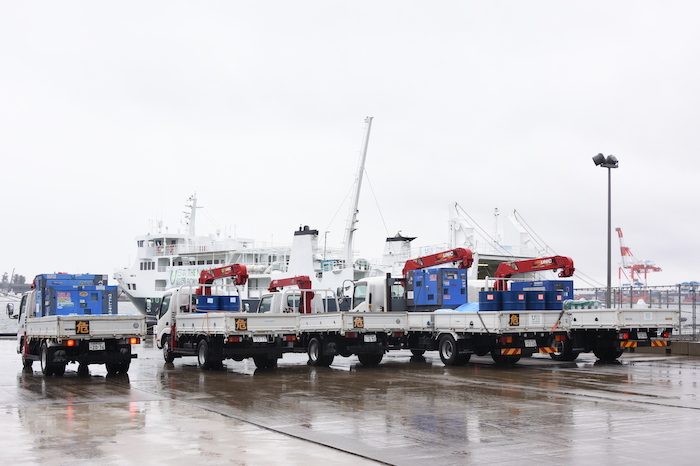
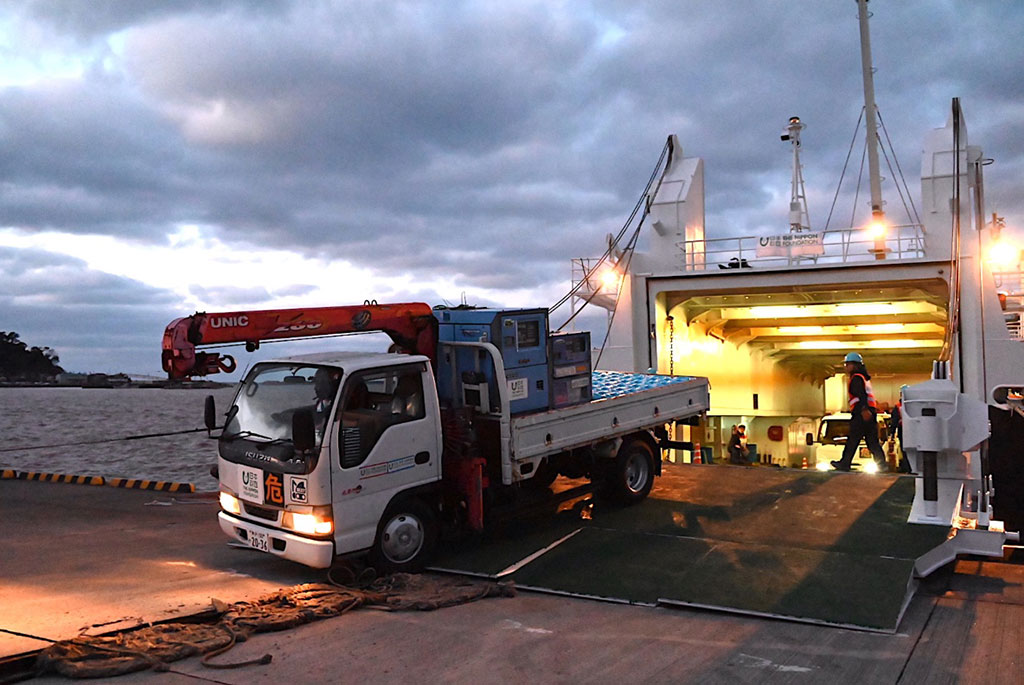
In addition to this evacuation center, the first round of items will be delivered to community centers and other evacuation centers with the greatest needs, in coordination with the Wajima city government.
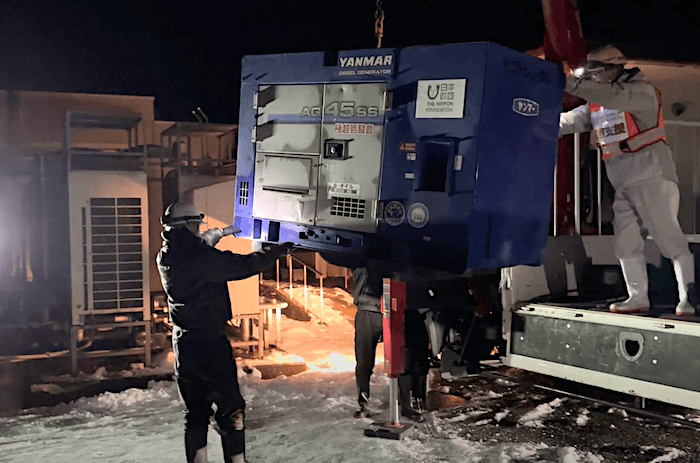
On January 14, the RORO ferry was used again to transport showers for evacuation centers and sinks for medical care and other uses in response to requests from local governments.
This delivery consisted of: (1) 10 free-standing WOTA BOX* shower kits; (2) 30 free-standing WOSH* sinks; (3) two 2-ton water tanks; (4) 20 heavy-duty 30-meter electrical cord reels; (5) one power generator (45kVA); and (6) 10 bottles of chlorine disinfectant, 20 boxes of masks, five plastic containers, and 20 hand pumps. The items were loaded onto eight trucks at Kanazawa Port, leaving the port on the RORO ferry at roughly 7 a.m. and arriving at Iida Port in the city of Suzu at roughly 2 p.m. the same day.
- * WOTA BOX and WOSH, manufactured and sold by Wota Corp., are self-contained, reusable water systems that can be used where there is no water infrastructure.
One of the shower units and two sinks were immediately delivered to and installed at an elementary school in Suzu that is being used as an evacuation center. In addition, 1,000 towels are scheduled to be delivered to evacuation centers and other locations in Suzu on January 16. The electrical cord reels and water tanks will be delivered after assessing where they are most needed.
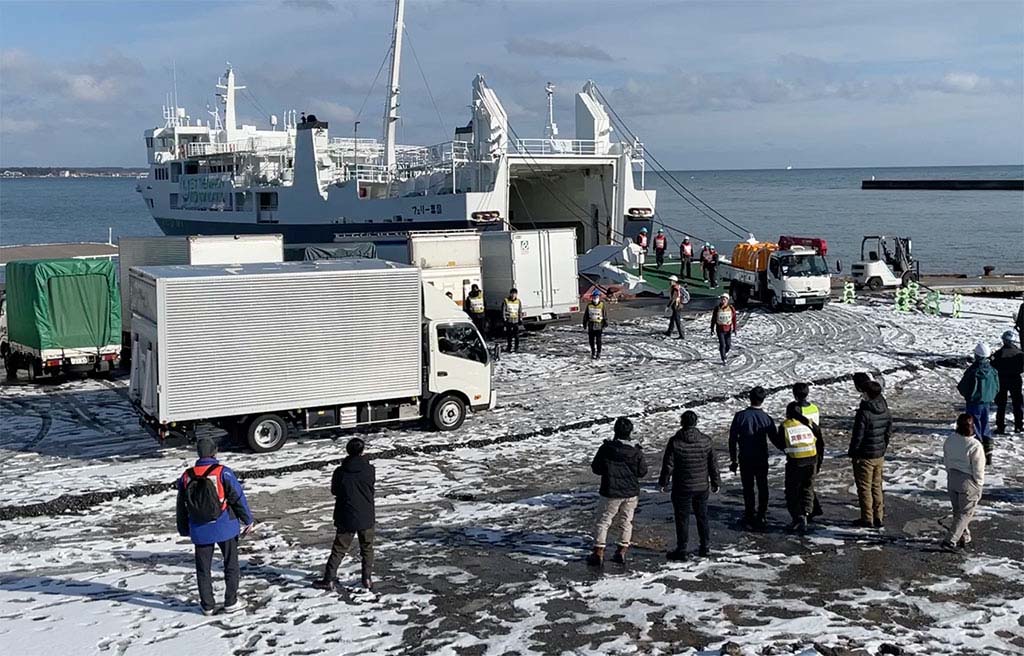
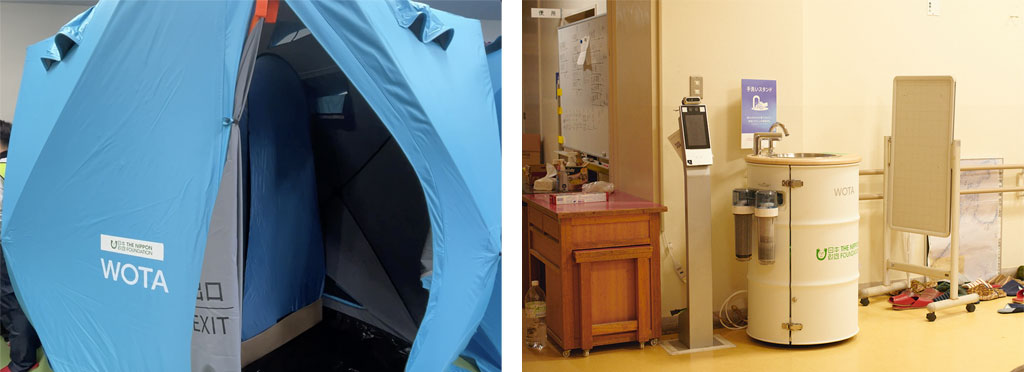
A portion of the donations received from the general public is being used for the showers and sinks, and the towels have been donated by a company in Imabari in Ehime Prefecture, a city known as a quality towel-manufacturing center.
About the RORO ferry
The Aguni is a 462-ton RORO vessel that can accommodate 13 trucks weighing two to four tons each (equivalent to 23 general-purpose vehicles), and has been made available until January 20.
Items transported (planned totals)
- Large-scale power generators: 10 units (100V/200V: 25kVA~60kVA)
- Large steel plates: 20 (to enable vehicles to traverse rough terrain)
- Fuel:
Kerosine (heating use) – 4,000 liters
Diesel fuel (for trucks and power generators) – 2,000 liters - Portable reusable water systems: 100 showers and 200 sinks
Items are to be loaded onto trucks at Kanazawa Port and transported by sea to ports nearest affected areas.
Related Links
Contact
Public Relations Team
The Nippon Foundation
- Email: cc@ps.nippon-foundation.or.jp



